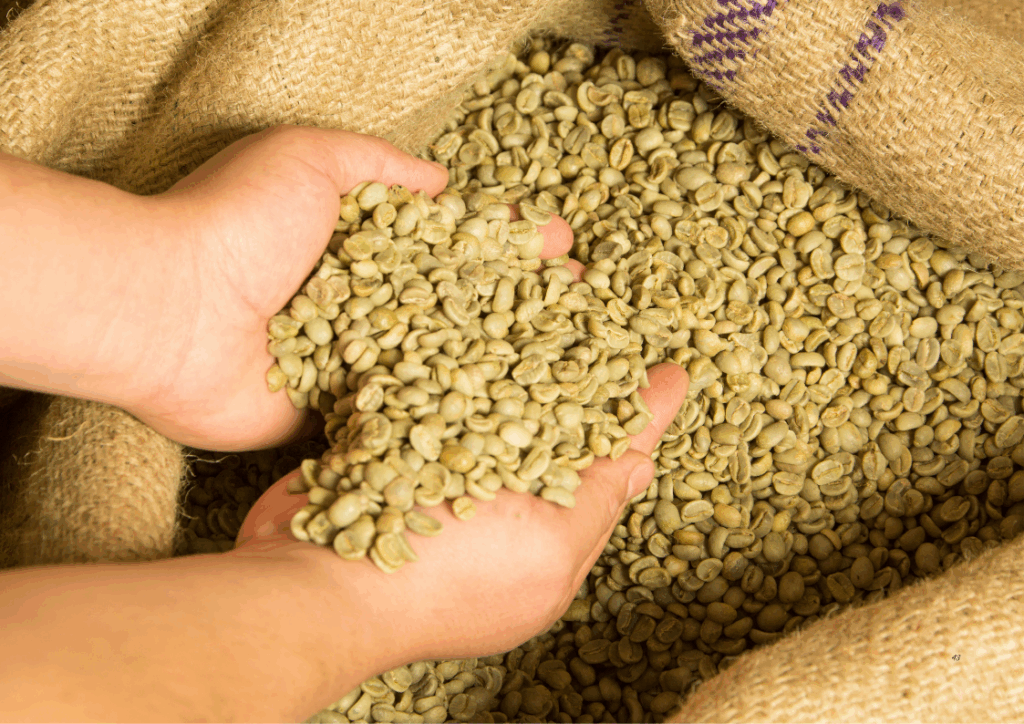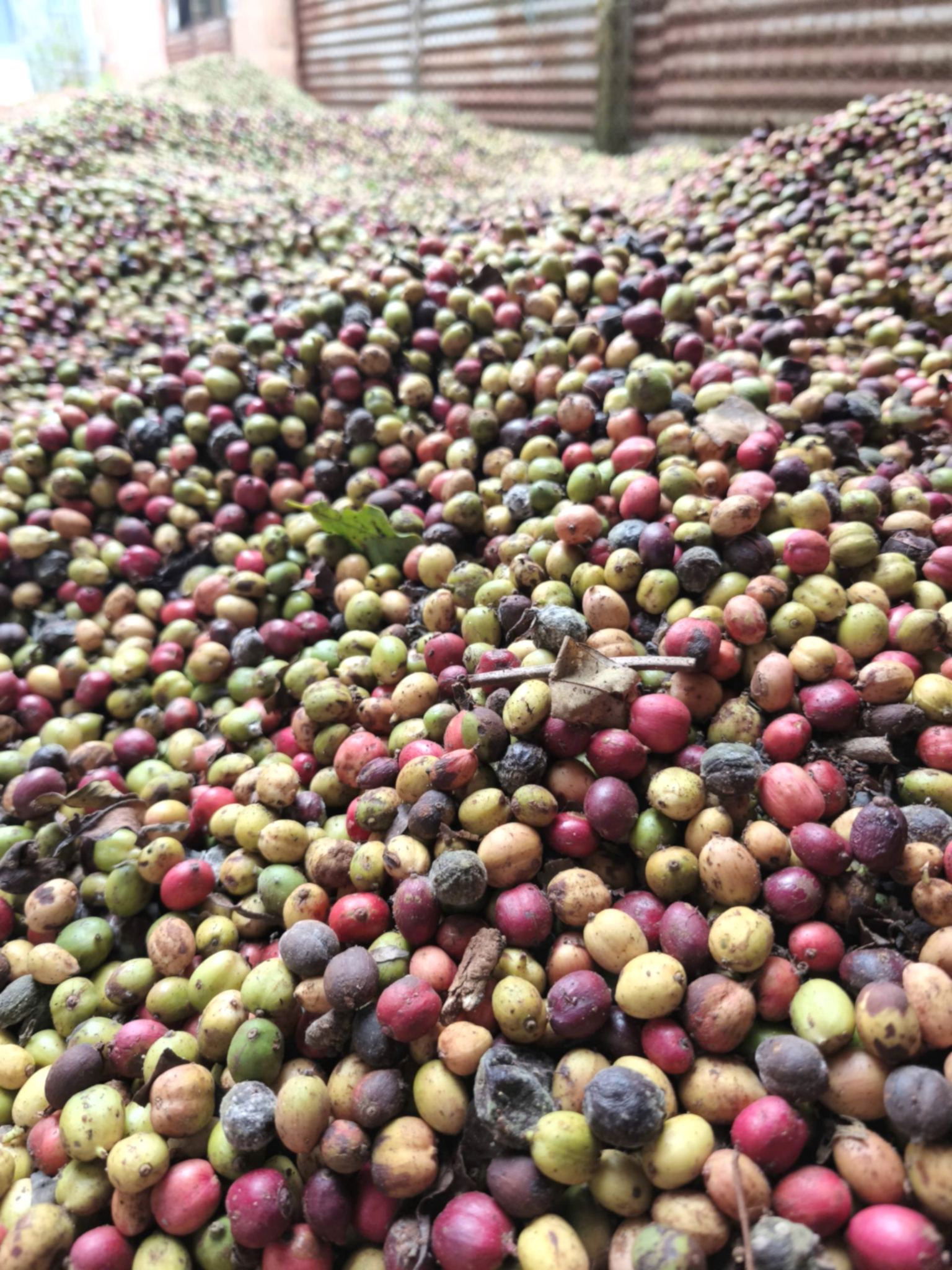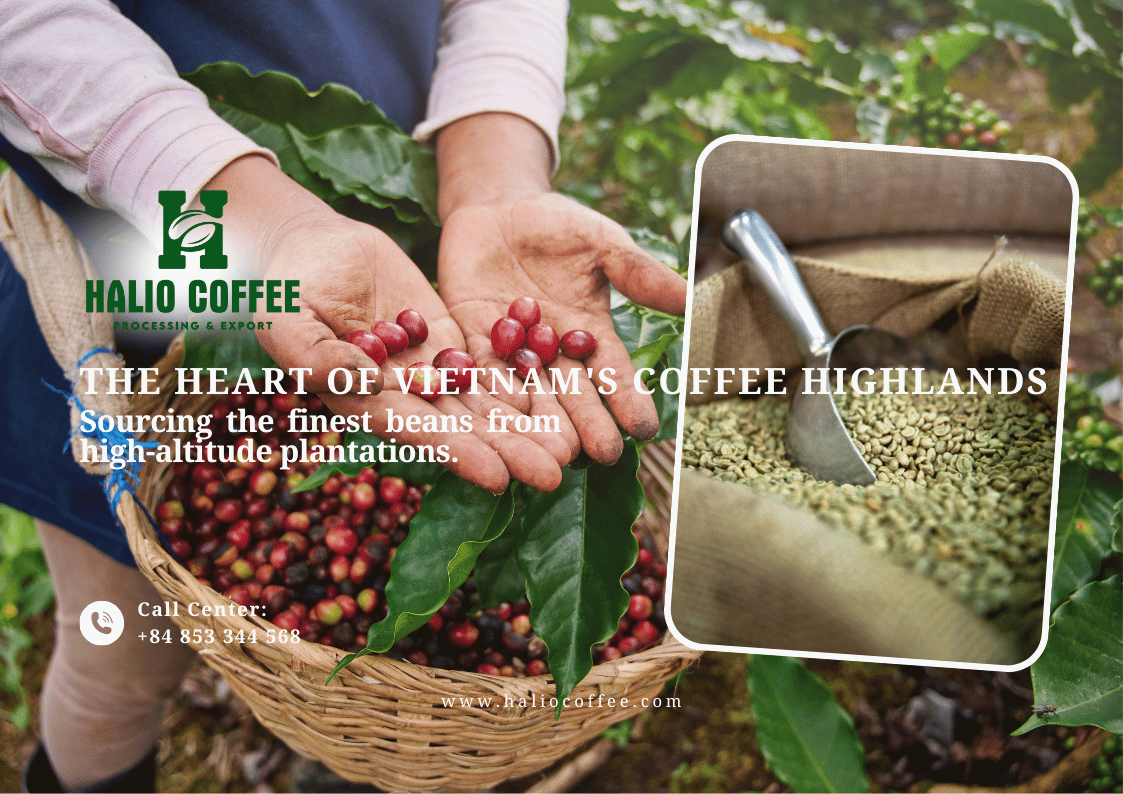Specialty Coffee Beans: The Pinnacle of Quality and Opportunity in Vietnam’s Coffee Market
For coffee roasters, coffee manufacturers, and green coffee bean distributors globally, Specialty Coffee Beans represent the highest echelon of coffee quality, offering unparalleled flavor, ethical sourcing, and immense market potential. More than just a commodity, specialty coffee signifies an entire value chain committed to excellence, from seed to cup. Originating from the careful cultivation of unique microclimates to precise processing and expert roasting, these beans are meticulously evaluated to achieve an exceptional cupping score of 80 points or higher on a 100-point scale by certified Q-Graders of the Specialty Coffee Association (SCA). As of Saturday, July 26, 2025, from Buon Ma Thuot, Dak Lak, Vietnam, we delve into the defining characteristics, production standards, market trends, and the burgeoning role of Vietnam as a source for these exquisite beans.
1. What Defines Specialty Coffee Beans?
The term “specialty coffee” was first coined by Erna Knutsen in 1974 to describe beans of the best flavor, produced in special micro-climates. It encapsulates a holistic approach to quality across the entire coffee supply chain.
1.1 The SCA Grading Standard
The most authoritative definition of Specialty Coffee Beans comes from the Specialty Coffee Association (SCA). To qualify as specialty grade, green coffee beans must meet stringent criteria:
- Cupping Score: Must achieve a score of 80 points or higher on a 100-point scale during a standardized cupping and grading session.
- 80-84.99 points: “Very Good”
- 85-89.99 points: “Excellent”
- 90-100 points: “Outstanding”
- Defect Tolerance: A 350-gram sample of green coffee must have:
- Zero Category 1 defects (major defects like full black beans, severe insect damage, large foreign matter).
- No more than five Category 2 defects (minor defects like partial black beans, small insect damage, broken/chipped beans).
- Sensory Attributes: Evaluated across 10 key attributes during cupping: fragrance/aroma, flavor, aftertaste, acidity, body, balance, uniformity, cleanliness, sweetness, and overall impression.
1.2 Characteristics of Specialty Grade Coffee
Beyond the score, Specialty Coffee Beans possess inherent qualities derived from meticulous care:
- Origin Matters: Often sourced from specific high-altitude coffee regions or even particular micro-lots known for unique soil, climate, and coffee varietals. This provides a distinct Natural Coffee Flavor Profile or a bright, clean washed profile.
- Traceability and Transparency: Full traceability from “seed to cup” is a hallmark. Buyers can typically trace the beans back to the specific farm or cooperative, understanding the growing conditions, processing methods, and coffee producers involved.
- Optimal Cultivation: Grown under ideal conditions, often involving careful soil management, precise irrigation, and sustainable practices.
- Selective Harvesting: Predominantly hand-picked, ensuring only perfectly ripe cherries are selected for processing.
- Precise Processing: Utilizes controlled processing methods (washed, natural, honey, or experimental fermentations like anaerobic) to enhance and highlight the bean’s intrinsic flavors, rather than masking them.
- Artisan Roasting: Coffee roasters apply customized roast profiles designed to unlock the specific flavors inherent in each green coffee bean lot, avoiding over-roasting that can burn off delicate notes.
- Freshness: Emphasizes freshness at every stage, from harvest to roasting and distribution. This is where a reliable green coffee bean distributor plays a crucial role, ensuring prompt delivery from the farm.
2. Production and Processing Excellence in Specialty Coffee

The journey of Specialty Coffee Beans is characterized by an unwavering commitment to quality at every step, starting from the raw coffee beans on the farm.
2.1 Cultivation and Harvesting
- Varietal Selection: Choosing the right coffee varietals (e.g., Typica, Bourbon, Geisha, SL28/34, or local Catimor strains adapted to specific terroirs) that thrive in the region and possess desirable flavor characteristics is fundamental.
- Sustainable Farming Practices: Many specialty farms adopt sustainable methods, including organic farming, shade-grown cultivation, and water conservation. These practices not only benefit the environment but also contribute to healthier plants and superior coffee bean quality.
- Hand-Picking: This labor-intensive but essential method ensures uniform ripeness, which is critical for consistent flavor development during processing and achieving a high cupping score.
2.2 Advanced Processing Methods
Specialty coffee embraces a range of processing methods, each carefully executed to highlight different flavor attributes of the raw coffee beans:
- Washed Process: This method produces a clean, bright, and acidic cup, allowing the inherent flavors of the Arabica Coffee to shine. It typically involves depulping, fermentation in water tanks to break down mucilage, and meticulous washing before drying.
- Natural Process (Dry Process): This method results in a fruit-forward, sweet, and full-bodied coffee, as the bean absorbs flavors from the drying cherry. This process, when done correctly (often on African drying beds), can yield an incredibly vibrant Natural Coffee Flavor Profile.
- Honey Process (Pulped Natural): A hybrid method where cherries are depulped, but some or all of the mucilage is left on the bean during drying. It offers a balance of sweetness, body, and nuanced fruitiness.
- Experimental Processes: Increasingly, coffee producers in the specialty segment are experimenting with controlled anaerobic fermentation, carbonic maceration, and co-fermentation with fruits to create highly unique and exotic flavor profiles that push sensory boundaries.
2.3 Post-Processing and Quality Control
- Dry Milling: Precise removal of parchment and outer layers from the dried coffee beans without causing damage.
- Electronic and Manual Sorting: Beans are sorted by size, density, and color, often with the final quality check performed by hand to remove any remaining defects, ensuring a clean and uniform batch of Specialty Coffee Beans.
- Moisture Content Control: Beans are carefully dried to optimal moisture levels (typically 10-12%), then stored in breathable, protective bags like GrainPro bags to preserve freshness and prevent degradation, which is vital for maintaining their quality during storage and transit.
- Cupping and Grading: Rigorous and repeated cupping sessions are conducted by certified Q-Graders to assess the coffee’s quality, identify flavor notes, and assign a cupping score. This is the ultimate determinant of a bean’s specialty status.
3. The Specialty Coffee Market in Vietnam: A Growing Opportunity

Vietnam, predominantly known for its robusta production, is rapidly emerging as a significant player in the Specialty Coffee Beans market, particularly for Arabica coffee. This shift offers exciting prospects for international and domestic coffee companies, including coffee roasters and coffee manufacturers.
3.1 Vietnam’s Specialty Arabica Regions
- Lam Dong Province (Cau Dat, Da Lat): This is the heart of Vietnam’s specialty Arabica production. Its high-altitude coffee farms benefit from cool climates, producing beans with distinct characteristics. Vietnamese Arabica coffee from Cau Dat is celebrated for its balanced acidity, chocolatey notes, nutty undertones, and often subtle fruitiness. Producers here are increasingly focusing on single-origin lots and experimenting with diverse processing methods to enhance their Natural Coffee Flavor Profile and other unique attributes.
- Northwestern Provinces (Son La, Dien Bien): These areas are gaining recognition for their emerging specialty coffee production, offering unique microclimates that can yield nuanced flavor profiles, adding to the diversity of raw coffee beans available from Vietnam.
- Quang Tri (Huong Hoa): Another promising region where efforts are being made to cultivate and process specialty-grade Arabica coffee, contributing to Vietnam’s growing reputation.
3.2 Advancements and Trends in Vietnamese Specialty Coffee
- Investment in Quality: Significant investment is being made in cultivation techniques, modern processing infrastructure (African drying beds, controlled fermentation tanks), and post-harvest handling to consistently elevate coffee bean quality. This includes adopting best practices learned from other specialty origins.
- Focus on Traceability: Vietnamese coffee producers and exporters are increasingly implementing robust traceability systems, providing detailed information about the coffee’s origin down to the farm or even parcel level. This is crucial for international markets and for compliance with regulations like the EU Deforestation Regulation (EUDR), which became effective in December 2024.
- Growing Domestic Consumption: A burgeoning domestic specialty coffee scene, particularly in major cities like Ho Chi Minh City and Hanoi, is fostering demand and encouraging local roasters to seek higher-quality green coffee beans, creating a vibrant internal market.
- Direct Trade Initiatives: More direct relationships are being forged between Vietnamese coffee producers and international buyers, promoting transparency, ensuring fair compensation, and allowing for greater collaboration in quality improvement.
3.3 Strategic Advantages for Sourcing Specialty Coffee from Vietnam
- Unique Flavor Profiles: Vietnamese specialty Arabica offers distinct flavor profiles that can diversify a roaster’s portfolio and provide unique espresso blends or single-origin offerings that stand out in the market.
- Competitive Value: While commanding a premium over commodity coffee, Vietnamese specialty beans can offer excellent quality-to-price ratios, providing strong value for money and potentially boosting margins for coffee companies.
- Reliable Supply Chain: The increasing sophistication of Vietnamese green coffee bean distributors and exporters ensures more reliable logistics, consistent quality, and adherence to international shipping standards.
- Sustainability & Traceability: Growing commitment to sustainable practices and verifiable traceability aligns with global consumer and regulatory demands, positioning Vietnam as a responsible sourcing origin.
See more:
- Coffee Growing Regions
- Halio Coffee – Your Trusted Fresh Coffee Distributor of Robusta & Arabica Beans
4. Strategic Sourcing of Specialty Coffee Beans for Businesses

For coffee roasters, coffee manufacturers, and green coffee bean distributors, sourcing Specialty Coffee Beans requires a meticulous and strategic approach to ensure consistent quality and meet market demands.
- Clearly Define Your Quality & Flavor Needs:
- Determine the specific cupping score range, desired Natural Coffee Flavor Profile (e.g., fruity, chocolatey, floral), body, and acidity.
- Specify preferred processing methods (washed, natural, honey) and coffee varietals that align with your product line.
- Consider your target market and how the unique attributes of specialty coffee will differentiate your product offerings.
- Thorough Vetting of Suppliers:
- Partner with reputable green coffee bean distributors or direct exporters who specialize in specialty coffee and have strong, transparent relationships with coffee producers in Vietnam.
- Verify their quality control protocols, including green coffee analysis capabilities, cupping and grading expertise (e.g., certified Q-Graders on staff), and storage conditions (ensuring the use of GrainPro bags and climate-controlled facilities).
- Demand transparency regarding origin, farm practices, and adherence to certifications or ethical guidelines. Crucially, ensure they are prepared for EUDR compliance if exporting to the EU, providing farm-level traceability data.
- Rigorous Sample Evaluation and Cupping:
- Never purchase without sampling. Request multiple pre-shipment samples from specific lots. Conduct extensive blind cuppings in your own facility to objectively assess the raw coffee beans against your quality criteria.
- For coffee roasters, perform multiple test roasts with different roast profiles to understand the bean’s full potential and how it performs in various applications (e.g., espresso blends, pour-over, cold brew).
- Logistics and Freshness Assurance:
- Confirm efficient logistics, lead times, minimum order quantities (MOQs), and payment terms with your green coffee bean distributor.
- Prioritize suppliers who emphasize freshness and proper packaging (e.g., GrainPro bags or vacuum packing for micro-lots) to protect Specialty Coffee Beans from moisture fluctuations and contamination during transit and storage.
- Cultivate Long-Term Partnerships:
- Forge partnerships based on trust and mutual understanding. Long-term relationships with coffee producers and green coffee bean distributors foster consistency, ensure preferred access to limited micro-lots, and allow for collaborative development of unique processing methods or custom lots tailored to your specific needs.
Specialty Coffee Beans represent the pinnacle of coffee excellence, embodying a commitment to quality that spans the entire supply chain. Their complex flavors, ethical provenance, and consistent high standards offer unparalleled opportunities for differentiation and consumer engagement. As Vietnam solidifies its position as a burgeoning origin for high-quality Arabica coffee, particularly its distinctive naturals and clean washed lots, it provides a compelling proposition for global coffee companies. By strategically sourcing these exceptional beans and prioritizing partnerships built on quality, transparency, and sustainability, businesses can unlock new dimensions of flavor, meet evolving consumer demands, and thrive in the dynamic world of specialty coffee. The future of Vietnamese specialty Arabica is vibrant, promising an exciting array of flavors for discerning palates worldwide, cementing its place in the global coffee industry.
- Timing is Everything: Your Definitive Vietnamese Coffee Harvest Season Guide
- Coffee Price Today: Domestic Vietnam Market Hits Nearly 100,000 VND/kg, Despite Global Weakness
- Coffee Prices Today, October 7th: Quiet Trading as Market Awaits US-Brazil Tariff Talks
- Coffee Prices Today, September 27: Both Exchanges Rally Strongly to End the Week
- Coffee Prices Today, Nov 7: Prices Turn Down; What Are the Causes?







